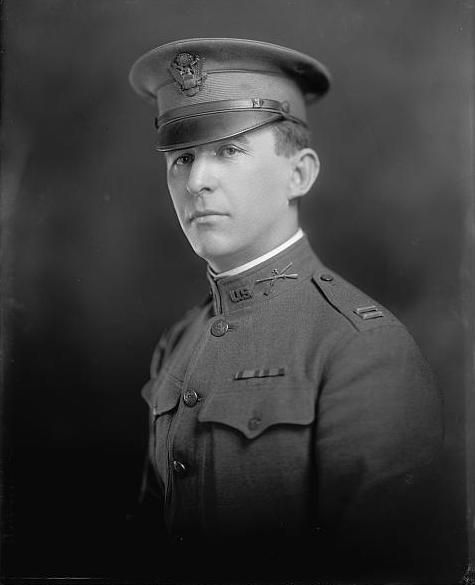 |
| Captain Krueger, Returned to His Permanent Rank After His World War I Service |
In his 1995 article, "General Walter Krueger and Joint War Planning, 1922-1938," retired U.S. Army Officer George B. Eaton, discusses the contributions of AEF veteran Walter Krueger to the planning of War Plan Orange, the strategy for defeating Japan in the Pacific Theater in a future struggle. The eventual campaign in the Pacific closely followed the final form of Plan Orange (except the atomic bomb). Krueger was greatly guided by his earlier experience in the Great War and in the Philippines. Here's some background on Krueger, who was one of the most important officer's in American history but is somewhat forgotten today.
Walter Krueger was born in Flatow, West Prussia, on 26 January 1881. His father died in 1884, and in 1889 Anna Hasse Krueger brought Walter and his two siblings to the United States. When the Spanish-American War broke out in 1898, Walter was enrolled in the Cincinnati Technical Institute. He enlisted in the 2d Volunteer Infantry and served in Cuba at Santiago and Holguin. In June 1899 Krueger enlisted in the regular Army. He was posted to the Philippines and fought in several engagements during the Philippine Insurrection, rising to the rank of sergeant. Krueger received a commission in 1901, having passed a written examination in lieu of West Point attendance (a common procedure at the time). After a tour in the United States, which included teaching at the Infantry and Cavalry School, Krueger returned to the Philippines, where he mapped areas of Luzon to the north and east of Manila.
Krueger's career soon settled into the slow grind of the old Army. He was promoted to captain only in 1916, but by the end of the First World War he had spent two tours in France, as a key staff officer of two divisions, the 26th and 84th, chief of staff of the Army Tank Corps, and as operations officer of two different corps, including the one that commanded the occupation troops in Germany from 1918 until 1923, advancing to the rank of temporary colonel. For his service in the war, he was awarded the Distinguished Service Medal in 1919. He was then assigned to the second Army War College class convened after the war. After graduation, although now qualified for either General Staff service or higher command, Krueger was retained at the College, first as an instructor and then in the Historical Division. He traveled to Berlin in early 1922 to study German strategy. In April 1923 Krueger began his first tour in the Army War Plans Division (AWPD).
Download the full 23-page article HERE.

No comments:
Post a Comment